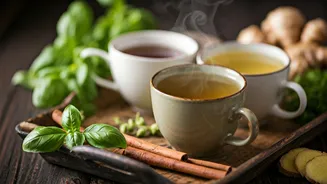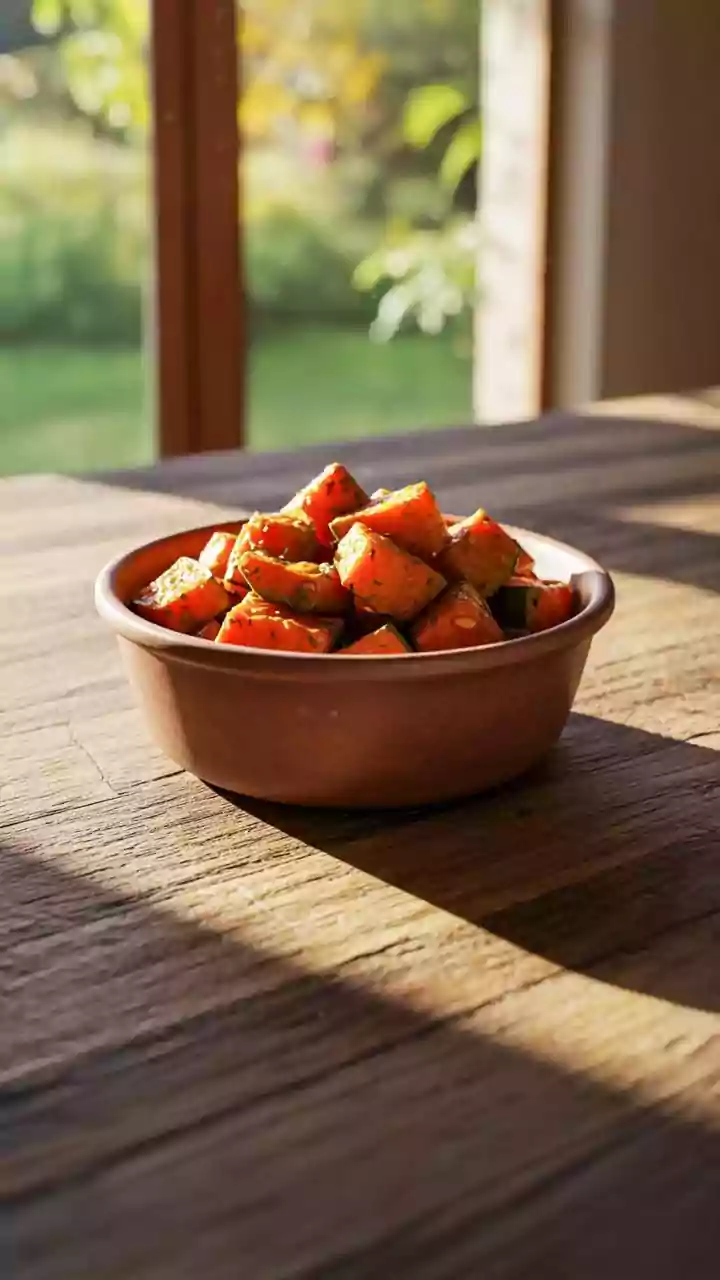Bloating: A Common Issue
Bloating, a widespread digestive complaint, affects a significant portion of the population. Studies reveal that between 16% to 30% of individuals experience
it. It's more than just a minor annoyance; it signifies that the digestive process is struggling. The typical response often involves medication, yet a gastroenterologist suggests a shift towards natural solutions. The aim is to find relief through readily available kitchen ingredients. This article focuses on herbal teas, as advocated by a leading gut health specialist.
Understanding Bloating Symptoms
Bloating can truly disrupt daily routines. It's characterized by a feeling of fullness or swelling in the abdomen, which is often caused by factors such as overeating, lactose intolerance, and constipation, according to the National Cancer Institute. The NHS indicates several signs, including a stomach feeling fuller or bigger than usual, pain or discomfort in the abdomen, rumbling noises or sounds from the stomach, and increased flatulence. While medication may provide temporary alleviation, these herbal teas, recommended by Dr. Sethi, promise a longer-lasting solution. Let's delve into these options.
Basil Tea's Magic Touch
According to Dr. Sethi, basil tea acts with remarkable efficacy. It contains natural ingredients that aid in relaxing the digestive muscles and releasing trapped gas. Most individuals report finding relief within 15-20 minutes after consumption, according to the doctor's newsletter. However, homemade tea is the key to experiencing these benefits. It's easier than you might anticipate. Dr. Sethi has provided a simple recipe to guide the preparation of this tea. The steps include boiling water, thoroughly washing fresh basil leaves, placing the leaves in a teapot or mug, pouring the boiling water over the leaves, allowing it to steep for 5-10 minutes, and finally, straining and enjoying it hot.
Fennel Tea’s Benefits
Fennel tea is renowned for its digestive aid properties. It's often recommended for reducing bloating and easing discomfort. Fennel seeds contain compounds that help relax the intestinal muscles, which aids in releasing trapped gas. To prepare fennel tea, you'll need fennel seeds, which can be easily found in most Indian kitchens. Start by gently crushing a teaspoon of fennel seeds to release their aroma. Next, boil water and pour it over the crushed seeds, allowing them to steep for about 10-15 minutes. Strain the tea before drinking, and the warmth will provide a soothing effect. This tea provides a gentle yet effective way to alleviate bloating and promote digestive comfort.
Ginger Tea for Relief
Ginger tea, a well-known remedy, is celebrated for its ability to reduce inflammation and ease digestive discomfort. Ginger contains gingerol, a compound with potent anti-inflammatory properties, making it an excellent choice for soothing the digestive system. To make this tea, slice a small piece of fresh ginger and boil it in water for about 10-15 minutes. Alternatively, you can grate the ginger for a more intense flavor. Once the tea has steeped, strain it and drink while it's still warm. Many find ginger tea particularly helpful in reducing bloating and alleviating associated discomfort. It's a simple, readily available kitchen staple that offers significant digestive benefits.



















